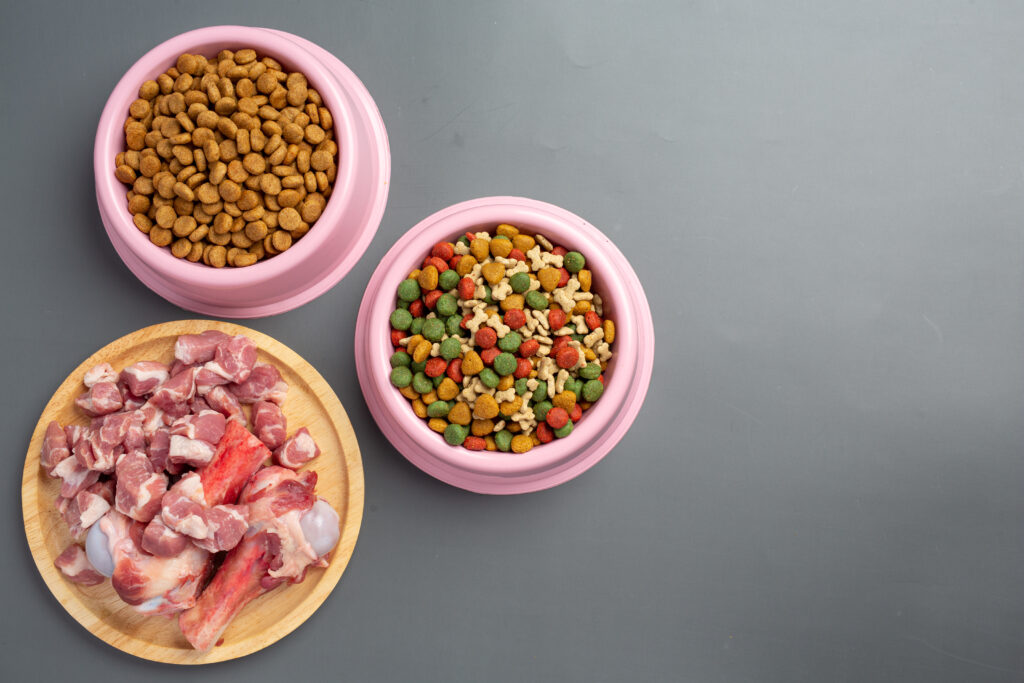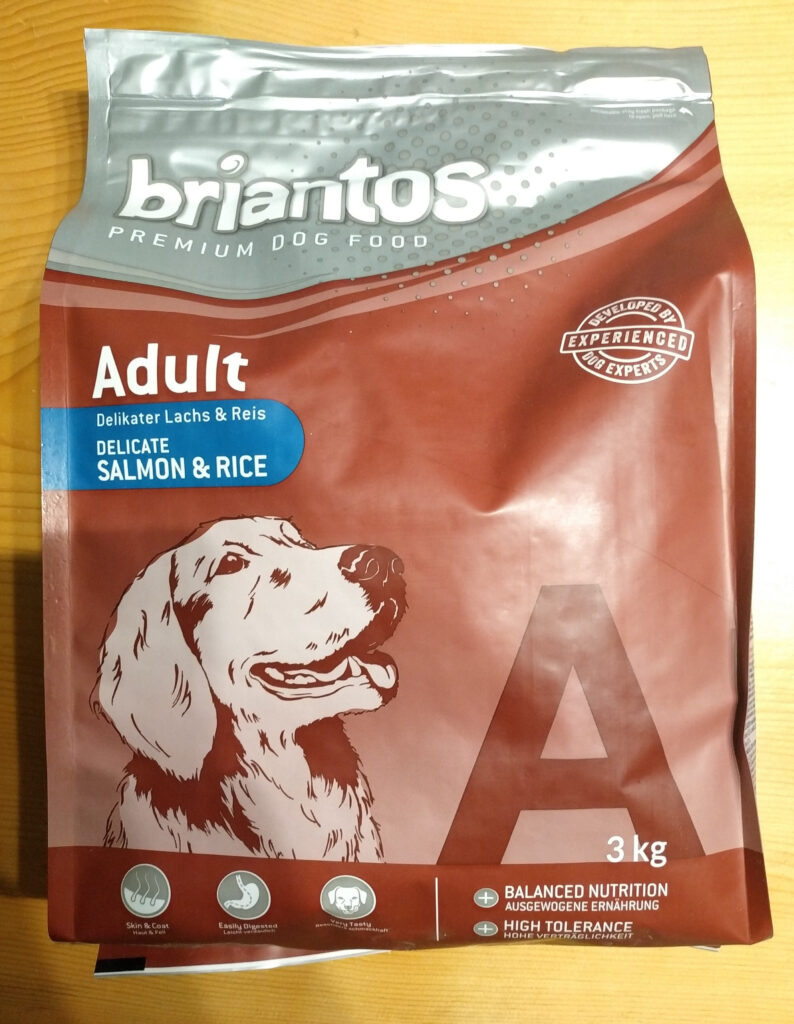
Introduction to Salmon Dog Food
Welcome to our blog post all about salmon dog food! If you’re a pet parent looking for a nutritious and delicious option to add to your furry friend’s diet, then look no further. Salmon dog food is becoming increasingly popular among dog owners who want to provide their pups with a high-quality protein source that also offers numerous health benefits. In this article, we’ll explore the many advantages of feeding your dog salmon, discuss different types of salmon dog food available on the market, offer tips on how to choose the best one for your pet’s needs, showcase some top brands worth considering, share homemade recipes for those who prefer DIY options, and address any potential risks or side effects associated with feeding dogs salmon. So let’s dive right in and discover why salmon is truly a superfood for our four-legged companions!
Benefits of Salmon Dog Food

Benefits of Salmon Dog Food
Salmon dog food offers numerous benefits for our furry friends. First and foremost, salmon is rich in omega-3 fatty acids, which are essential for dogs’ overall health. These fatty acids promote healthy skin and coat, reducing itching, dryness, and flakiness.
Additionally, the omega-3s found in salmon have anti-inflammatory properties that can benefit dogs with joint issues or arthritis. Regular consumption of salmon dog food may help reduce inflammation and alleviate discomfort.
Furthermore, salmon is an excellent source of high-quality protein. Protein is vital for muscle development and repair in dogs. It supports their energy levels and helps maintain a healthy weight.
Another advantage of feeding your dog salmon is its potential to boost their cognitive function. The omega-3 fatty acids present in this fish are known to support brain health and improve mental sharpness.
Moreover, including salmon in your dog’s diet can enhance their immune system due to its antioxidant content. Antioxidants help fight free radicals that can cause cell damage.
Lastly but not least importantly, many dogs simply love the taste of salmon! Its unique flavor adds variety to their meals while still providing them with all the nutritional benefits it has to offer.
In conclusion…
Salmon dog food provides a range of benefits for our canine companions – from promoting a shiny coat to supporting joint health and boosting their immune system. Consider incorporating this nutritious fish into your pet’s diet under the guidance of a veterinarian or by choosing reputable brands offering balanced formulations containing real salmon as the main ingredient.
Types of Salmon Dog Food

Types of Salmon Dog Food
When it comes to choosing the best salmon dog food for your furry friend, there are several types available on the market. Each type offers unique benefits and options to cater to different dietary needs and preferences.
One popular option is dry kibble. This type of salmon dog food is convenient and easy to store, making it a favorite among many pet owners. Dry kibble usually contains a combination of salmon, other protein sources, grains, and vegetables. It provides a balanced diet for dogs and helps maintain their dental health by promoting chewing.
Another option is canned or wet salmon dog food. This type often contains higher levels of moisture compared to dry kibble, which can be beneficial for dogs who need extra hydration or have trouble chewing hard foods. Canned salmon dog food also tends to have a stronger aroma and flavor that may entice picky eaters.
For pet parents who prefer feeding their dogs raw or minimally processed diets, there are also freeze-dried or dehydrated options available. These types of salmon dog food retain much of the natural nutrients found in fresh fish while providing convenience in storage and preparation.
It’s important to note that not all types of salmon dog food will be suitable for every dog’s specific needs. Factors such as age, breed, size, activity level, allergies or sensitivities should be taken into consideration when selecting the right type for your canine companion.
By understanding the various types available on the market and considering your pup’s individual requirements, you can make an informed decision about which type of salmon dog food will provide them with optimal nutrition and enjoyment at mealtime!
How to Choose the Best Salmon Dog Food for Your Pet
When it comes to choosing the best salmon dog food for your furry friend, there are a few key factors to consider. First and foremost, you want to look for a high-quality brand that uses real salmon as the main ingredient. This ensures that your pet is getting all of the nutritional benefits that come with this fish.
Next, take a look at the other ingredients in the dog food. It’s important to choose a brand that includes wholesome and natural ingredients. Avoid products that contain fillers or artificial additives, as these can be harmful to your pet’s health.
Consider your dog’s specific needs when selecting a salmon dog food. Some brands offer options tailored for puppies, seniors, or dogs with allergies or sensitivities. If necessary, consult with your veterinarian to determine any dietary restrictions or recommendations for your individual pet.
Don’t forget about taste! While nutrition is crucial, it won’t do much good if your dog refuses to eat it. Look for reviews from other pet owners or consider purchasing small sample sizes before committing to a larger bag.
Remember, finding the best salmon dog food may require some trial and error but taking these factors into account will help ensure that you’re providing your pup with a healthy and delicious meal option!
Top Brands of Salmon Dog Food

Top Brands of Salmon Dog Food
When it comes to choosing the best salmon dog food for your furry friend, there are several top brands that stand out in terms of quality and nutrition. These brands prioritize using high-quality ingredients, including real salmon, to provide a balanced diet for dogs.
One popular brand is Acana, which offers a range of grain-free options that feature fresh wild-caught salmon as the primary ingredient. Their recipes also include other wholesome ingredients like fruits and vegetables to ensure a well-rounded meal for your pet.
Another well-known brand is Orijen, which prides itself on producing biologically appropriate diets for pets. Their salmon dog food formula contains 85% fish ingredients, including whole Atlantic mackerel and herring alongside fresh Pacific pilchard.
If you’re looking for limited ingredient options or have a sensitive pup, Merrick’s Limited Ingredient Diet Grain-Free Salmon & Sweet Potato Recipe may be worth considering. This brand focuses on providing simple recipes with easily digestible ingredients while still delivering essential nutrients.
For those who prefer natural and organic choices, Wellness CORE offers a grain-free option with deboned salmon as the main protein source. They also add beneficial supplements like probiotics and omega fatty acids to support overall health.
These are just a few examples of top brands that offer high-quality salmon dog food options. Remember to always read the labels carefully and consider your pet’s specific needs before making your final decision!
Homemade Salmon Dog Food Recipes
Homemade Salmon Dog Food Recipes
When it comes to ensuring your furry friend gets the best nutrition, homemade dog food can be a great option. And what better protein source to include than salmon? Not only is it delicious, but salmon also offers numerous health benefits for dogs.
One simple recipe you can try is grilled salmon with sweet potato and green beans. Start by grilling a boneless salmon fillet until cooked through. While the fish is cooking, steam some sweet potatoes and green beans until tender. Once everything is done, simply chop it all up into bite-sized pieces and mix together.
Another tasty option is a salmon and vegetable stew. In a large pot, combine diced salmon with carrots, peas, spinach, and brown rice or quinoa. Add enough water or low-sodium chicken broth to cover the ingredients and simmer until everything is cooked through. For added flavor and nutrients, you can also add in some fresh herbs like parsley or dill.
For those looking for an easy treat recipe that’s perfect for training sessions or as rewards throughout the day, try making homemade salmon treats! Simply blend together canned wild-caught salmon with oats and an egg to bind everything together. Roll small portions of the mixture into balls or press them into cookie shapes before baking at a low temperature until firm.
These are just a few examples of homemade recipes featuring nutrient-rich salmon that your canine companion will love! Remember to consult with your veterinarian before making any significant changes to your dog’s diet.
Possible Risks and Side Effects of Feeding Your Dog Salmon

Possible Risks and Side Effects of Feeding Your Dog Salmon
While salmon can be a nutritious addition to your dog’s diet, it’s important to be aware of the possible risks and side effects that may come with feeding them this fish. One potential concern is the presence of parasites in raw or undercooked salmon. These parasites, such as roundworms or tapeworms, can cause gastrointestinal issues in dogs.
Another risk is the potential for mercury contamination in certain types of salmon. Mercury is a heavy metal that can accumulate in fish over time, and high levels of exposure can be toxic for dogs. It’s essential to choose high-quality sources of salmon that are low in mercury content.
Additionally, some dogs may have allergic reactions to salmon. Symptoms might include itching, redness, swelling, or digestive upset. If you notice any adverse reactions after introducing salmon into your dog’s diet, consult with your veterinarian.
Bones present another hazard when feeding dogs fresh or cooked whole salmon. Small bones can splinter and pose a choking hazard or cause damage to the esophagus or intestines if swallowed.
To mitigate these risks and ensure your dog benefits from consuming salmon safely:
1. Cook the fish thoroughly to eliminate parasites.
2. Choose wild-caught rather than farm-raised salmon whenever possible.
3. Opt for boneless fillets instead of whole fish.
4. Start with small portions when introducing salmon into your dog’s diet to monitor for any adverse reactions.
5 Maintain regular veterinary check-ups and discuss any dietary changes with them.
Remember: Every dog is different; what works well for one might not suit another! Being cautious about how you feed your furry friend will help keep them healthy while enjoying the nutritional benefits that come from incorporating delicious seafood like salmon into their meals!
Conclusion
Conclusion
Salmon dog food is an excellent option for pet owners looking to provide their furry friends with a nutritious and delicious meal. Its high levels of omega-3 fatty acids contribute to various health benefits, including improved coat and skin condition, joint health, cognitive function, and overall well-being.
When choosing the best salmon dog food for your pet, consider factors such as the quality of ingredients, sourcing practices, and any specific dietary needs or sensitivities your dog may have. It’s always important to consult with your veterinarian before making any significant changes to your dog’s diet.
There are many reputable brands that offer high-quality salmon-based dog food options. Look for companies that prioritize sustainable fishing practices and use natural ingredients without artificial additives or fillers.
If you prefer a more hands-on approach or want to add some variety to your dog’s meals, homemade salmon recipes can be a great option. Just ensure you follow proper cooking methods and avoid seasonings or ingredients that could be harmful to dogs.
While feeding your dog salmon can have numerous benefits when done correctly, it’s essential to be aware of potential risks and side effects. Raw or undercooked salmon can contain bacteria like Salmonella or parasites that could harm your pet. Additionally, some dogs may be allergic or sensitive to fish proteins.
Incorporating high-quality salmon-based products into your pup’s diet can be a healthy choice that supports their overall wellness. Always monitor their response closely after introducing new foods and consult with a veterinarian if you have any concerns about their dietary needs.
Remember: each dog is unique! What works well for one may not work as effectively for another. Pay attention to your furry friend’s individual preferences and needs when selecting the best nutrition options for them.